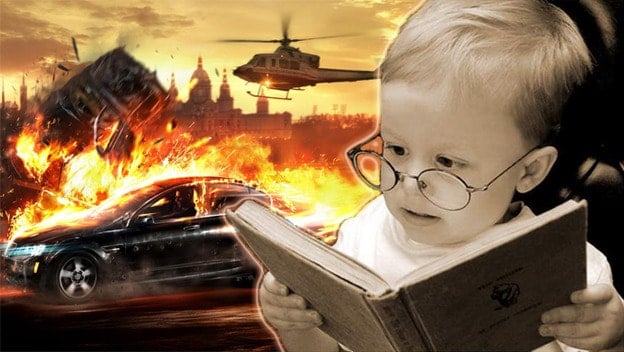Top 10 narratives in gaming is a bold claim to make, so I won’t make it. Instead, I’ll give you a list of 10 games that have some of the best stories in gaming, in no particular order. This list is comprised of games that traditionally tell exceptional stories, games that are evocative through their ambiguity and games that exemplify the elements of storytelling unique to the medium.
So without further adieu, I present to you, 10 Titles that Showcase Storytelling in Video Games.
Oh, and there will be the occasional spoiler, but not without a 5 year grace period from the game’s initial release. If you haven’t played Bioshock yet…shame on you.
Star Wars: Knights of the Old Republic
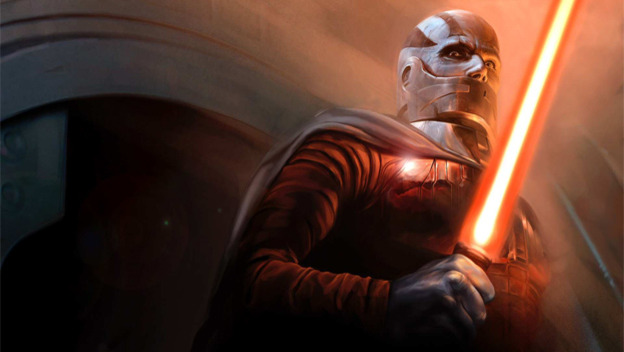
The game that put Bioware on the map remains one of the biggest twists in gaming. Aside from the clichéd amnesiac hero mechanic, Knights of the Old Republic quickly sets itself apart from other narratives by crafting a story that is both compelling and influenced by the player–a mechanic that would soon become a staple of western game design.
Players are shown a world in turmoil, as Darth Malak, a former apprentice of Sith Lord Darth Revan, wages a war on the Republic. While they uncover truths about their own past and forge alliances, they are given choices that will ultimately reflect their character’s morality.
In the end, it is revealed that the player character is actually a brainwashed Darth Revan, and depending on the choices they have made throughout the course of the game, their character will overthrow Malak and continue the war against the Republic, or he will defeat him and be worshipped as a hero.
At the time, this agency over the narrative and the twist that your protagonist was actually directly responsible for the unfortunate state of the game’s world, was more than unexpected. It was revolutionary.
The Walking Dead
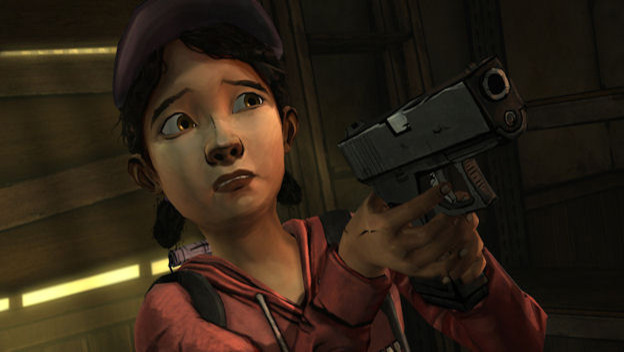
Telltale’s respect and love for a popular franchise ensured that The Walking Dead was more than just a shameful cash-grab. The developers showed their expertise in storytelling through a well-acted, well-scripted, player driven narrative that revolves around ideas of vulnerability and personal responsibility.
In the first game, players control an ex-con named Lee who takes it upon himself to protect and teach a young girl named Clementine in a post-apocalyptic zombie nightmare world. In the second game, after Lee’s tragic demise, Clementine serves as the protagonist and, in addition to the themes of the first game, players have to deal with a non-traditional disempowerment of the main character.
Check out our review of Season 2 to see how Video Games are still making gigantic leaps forward this far into its history.
Final Fantasy Tactics
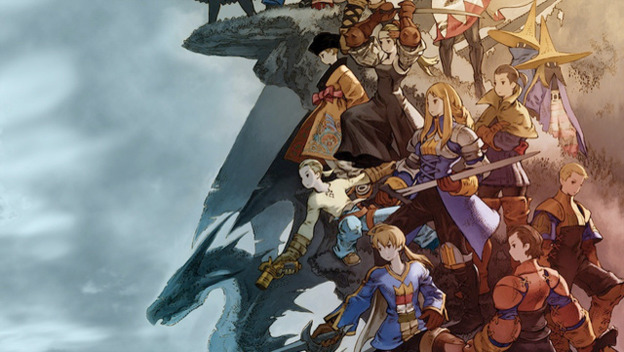
Final Fantasy is a franchise that has wide-ranging influence and an overwhelmingly dedicated fan base. While the mechanics of the series have always endeavored to break new ground and never stagnate, and the graphics have always been the best of their times, the stories the games tell have always been the most powerful reason to play the games.
Final Fantasy Tactics , a game that isn’t technically in the main series, tells a story that could, I kid you not, rival the nuance of Shakespeare. Themes of country, politics, friendship and betrayal govern this tale that ultimately sets out to surprise you as realistic selfishness in character rears its, somehow, unexpected head.
The perspective taken is also an interesting one. The dark epic is relayed to the player by a historian exploring the events of the game. The end result is a story that feels inevitable and tragic. Instead of watching these events play out, you are put in the frame of mind to understand that these things happened, and now we just have to learn and move past them.
Compare that to the more whimsical Final Fantasy X that feels like it’s bringing you along on an adventurous joyride, albeit its own death march towards tragedy, and you’ll begin to understand the importance of the tone in Tactics .
Dark Souls
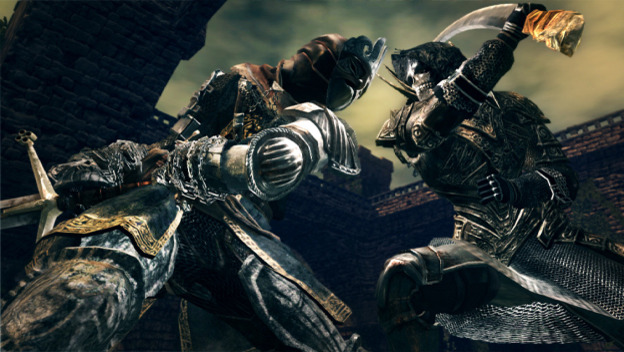
Dark Souls is an open world game with a rich, intricate narrative existing somewhere in the background, regardless of the main character’s plight. Every character feels important, and is somehow worthy of both player’s sympathy and contempt.
I don’t know this because the game threw it in my face; I know this because the Dark Souls community takes delight in piecing together the murky, twisted fairy tales and myth that comprise the games lore, from flavor text and character locations, to equipment names, and, well, yes… dialogue.
It’s not a very standard way to tell a story, but it’s intriguing to say the least, and it doesn’t alienate the crowd drawn to the game exclusively to overcome its immense difficulty by forcing them to watch costly cutscene after cutscene.
Super Mario RPG: Legend of the Seven Stars
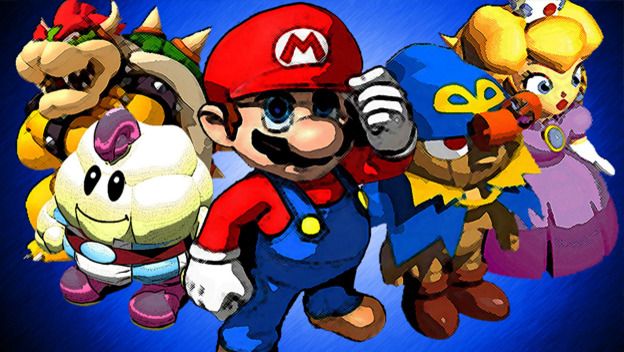
Bet you weren’t expecting a Mario game on this list, were you? This title, published by Nintendo and developed by Square, gave the world famous Mario depth, and gave players a reason to care about his quest.
The story puts players in charge of saving the Mushroom Kingdom from an otherworldly threat. The world is fun to explore, and introduces players to new controllable characters, like the marshmallow-esque Mallow and the series main antagonist, Bowser. Yes, Bowser allies with Mario to overcome a common enemy in this game.
The series serves as a spiritual successor to the Paper Mario franchise, and managed to introduce a wealth of players to a new genre.
The Legend of Zelda: Majora’s Mask
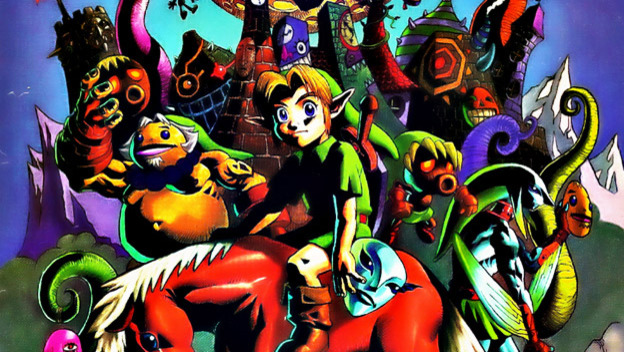
Nintendo tells stories a bit differently than other big publishers. Often, they’re not very upfront about the world of the game, and deliberately express only the most basic plotline of the game. But, like with Dark Souls , a lot of what makes their games enjoyable lies somewhere beneath the surface.
The doomed, but aptly named, world of Termina in the second 3D Zelda game is one that is begging to be explored. With a curse on the land that is drawing the moon closer and closer daily, a lot of the game’s characters are overcoming hardship as best they can. Exploring that world will reveal themes of denial, acceptance, and remaining strong for the sake of others.
While ultimately saved by the hero, the journey through Termina is one that frequently tugs at your heartstrings.
Bioshock
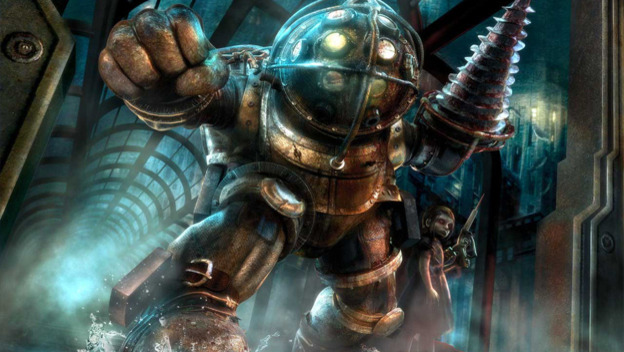
Rapture is a mess of a place to live, an idealized society gone bad. Located under the surface of the ocean, politics and mental deterioration plague a once great city. Two figure heads, Fontaine and Ryan, vie for control over the wreckage.
It’s an incredible setting, and most of the game’s story has taken place by the time the player character, Jack, even comes into the picture. The plot starts with the player character, Jack, surviving a plane wreck in the ocean. He ends up in the underwater city where he meets a man name Atlas. Atlas, fittingly enough, serves as Jack’s guide. Obeying him, under the guise of fulfilling favors, is the driving force behind Jack’s in-game actions.
When it is revealed that Jack is a sleeper agent, and the son of Ryan, stolen away by Fontaine and conditioned to respond to the control phrase, “would you kindly?” the whole narrative comes together. It is quickly pieced together that the only reason the character obeyed Atlas is because of his liberal use of the phrase.
But the player himself, obviously, wasn’t a sleeper agent. He was just obeying the mechanics of the game because, traditionally, that’s what players do. To win, you listen.
So this notion that the player was deceived alongside the character creates this weird, surreal sense of immersion that is rare in games, and wouldn’t work in any other medium.
Braid
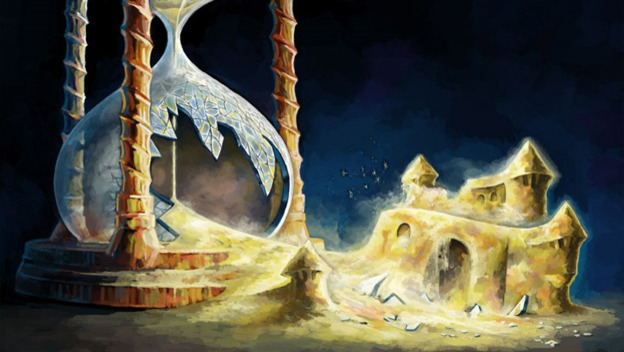
Everyone has their own take on what Braid could mean. People become personally invested in the story, and apply it to their own lives in a myriad of different ways.
When asked about the game’s narrative, developer Jonathan Blow stated that he “would not be capable” of explaining the whole story of the game in words, and said that the central idea is “something big and subtle and resists being looked at directly.”
The game seems to tell the story of a man attempting to get over a failed relationship. Or maybe it’s telling the tale of a hero trying to save a woman from a horrible monster. Or maybe it’s telling the tale of a scientist who regrets his role in the creation of the Atom bomb.
In the end, it doesn’t matter what the developer intended the game to mean. The literal story that is in place, combined with an ambiguous ending, creates a capacity for a game to fit exactly what the player is looking for.
Broken Age
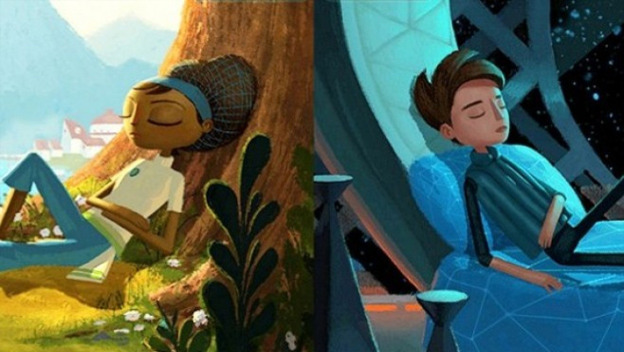
I won’t spoil Broken Age for you, because it doesn’t fit into my 5 year grace period for spoiling games. But I will talk about it in a very general sense. If that’s a problem, run! Click forward! Do not look back!
At first glance, Broken Age tells two stories that take place in vastly different settings.
Vella, a young girl, exists in a society that lives in fear of a Monster, Mog Chothra. To appease Mog Chothra, young girls from various villages are sacrificed to the beast. In a weird turn of events, which is in no doubt a social commentary, girls compete against one another to be the lucky one chosen by the beast. The pageantry is a bit gross.
In the related, but incredibly dissimilar, sci-fi portion of the game, Shay (voiced by Elijah Wood) lives alone on a ship with only the company of various AIs and a handful of creatures. The AIs are obnoxiously over protective, and the creatures are paid actors to entertain Shay. His daily routine consists of running missions to save these creatures. The missions are the same, day in and day out.
Both stories, prior to their inevitable collision, are thinly veiled social commentaries rife with the comical writing that Tim Schafer is known for that keep the player engaged through a relatively simple adventure game. The narrative plays to multiple audiences, and I heartily recommend playing it in the company of others.
Because once you’re finished, I promise you this – You will want to talk about it.
Enslaved: Odyssey to the West
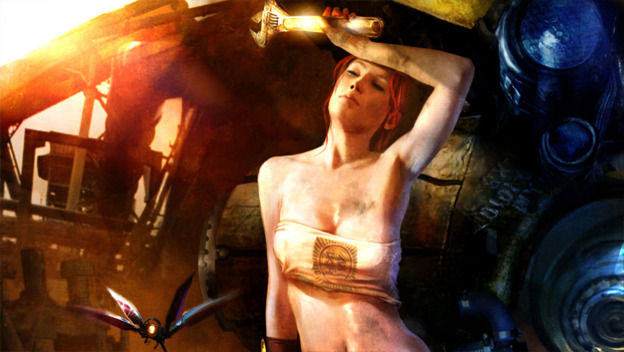
Inspired by Journey to the West , written by Alex Garland of 28 Days Later fame, and featuring the voice talent of Andy Serkis, this game should have been more successful than it was. Still, the story it told, to too few people, was an amazing one.
Set 150 years in the future, in an overgrown New York City, Enslaved follows the perspectives of Monkey and Trip, two slave ship escapees. Since Trip is desperate in the wake of a crash, she affixes a device to Monkey that bonds the two together in a fashion that ensures Monkey will help her find her home. If Trip dies, Monkey dies.
This makes for a delicate relationship that gets off on the wrong foot due to such an untrusting action. As the player watches the two grow closer, there is a level of wondering what is sincere and what is convenient.
Spoilers, they do get to be friends, but a breathtaking reveal in the game’s final moments rewrites what previously seemed like a lighthearted, typical adventure.
